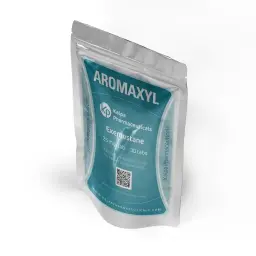Aromatase Inhibitors (8 Offers)
An aromatase inhibitor is a type of medication that plays a crucial role in the management of hormone-sensitive conditions, particularly certain types of breast cancer. These drugs work by blocking the enzyme aromatase, which is responsible for converting androgens into estrogens in the body. Since estrogen can promote the growth of some breast cancers, reducing its production can help slow or stop the progression of the disease.
Aromatase inhibitors are primarily used in postmenopausal women, where the primary source of estrogen is through the aromatization process in peripheral tissues. Commonly prescribed aromatase inhibitors include anastrozole, letrozole, and exemestane. These medications are often administered as part of hormone therapy to reduce the risk of cancer recurrence and to treat advanced or metastatic breast cancer.
Beyond oncology, aromatase inhibitors are also studied for their potential applications in other medical conditions influenced by estrogen levels. However, their primary and most well-established use remains in the treatment of hormone receptor-positive breast cancer.
While effective, aromatase inhibitors can have side effects, including joint pain, osteoporosis, and hot flashes, due to the lowered estrogen levels. Therefore, their use requires careful medical supervision to balance benefits and potential risks. Overall, aromatase inhibitors represent a significant advancement in targeted cancer therapy, offering hope for improved outcomes in hormone-dependent cancers.












